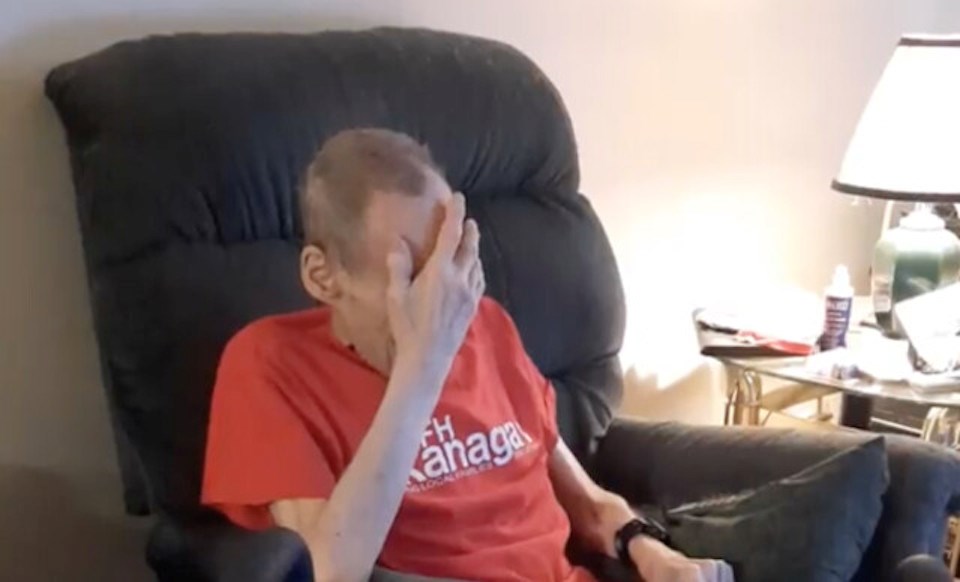An ailing elderly Kelowna man is struggling to survive after suffering a medical setback recently.
Randy Obenauer, 74, is suffering from a series of debilitating medical issues that have left him in need of constant in-home medical care.
Obenauer’s friend and neighbour, Vince Campbell, tells Castanet, “he's been on compensation for the last 10-15 years with an injury. But now he has heart and lung problems, he can't do a lot.”
Campbell says Obenauer managed to get by until about a year ago when his long-time care worker retired, and since then, it’s been a struggle to get the care he needs.
The situation took a turn for the worse recently when Obenauer had to have a catheter inserted to help with gall stone issues. He was treated in hospital and released on Friday. “There was no one else to pick him up so I had to go and get him,” Campbell says.
Since then, Obenauer has struggled with his catheter to the point where Campbell shared a video of him crying as he tried to deal with the issue himself.
“It’s heartbreaking,” Campbell said, exasperated, explaining he's not in a position to take on more responsibility caring for his friend.
Obenauer has little in the way of friends or family besides Campbell.
Campbell says the care workers have tried to convince Obenauer to enter a care home, but he wants to stay in his own home.
“He has a cat that he looks after, he smokes and he doesn't want to change. He just wants to die peacefully at home. And I think he should be entitled to that,” Campbell says.
Castanet reached out to Interior Health for more information on the type of care someone in Obenaurer’s condition and situation is entitled to.
“Interior Health understands this is a difficult situation for this individual. While we cannot speak to specific care information, Interior Health home support staff will follow up with Mr. Obenauer directly because our priority is to ensure we are providing quality home support services to individuals living in the community,” said a spokesperson for Interior Heath.
The health authority said those needing home support services are provided assistance with daily living activities such as bathing, dressing or grooming as well as medical administration and catheter maintenance.
Interior Health said the home support needs of individuals are determined through an assessment and when a client’s care needs change, their personal care plan is updated to reflect any changes to care – which may include offering a client additional appointments.
Campbell says that since Castanet began making inquiries on Monday, Obenauer has received increased care, but there was a time when Obenauer’s care providers were talking about signing him up for palliative care and B.C.’s medical assistance in dying program.
“They asked me if I thought Randy would consider the MAiD program and I said, well, no, he doesn’t want to die any sooner than he’s going to die. I was kind of shocked by that,” said Campbell.
Interior Health says MAiD is an option for individuals in B.C. who are approaching the end of life and who meet the eligibility criteria. A spokesperson for Interior Health says MAiD information may be provided to a client accessing palliative care services, but the decision to pursue MAiD as an option is completely up to the individual.
“The MAiD process recognizes that ending one’s life is a deeply personal decision that needs to be carefully considered and planned. Discussions are facilitated by an individual’s primary care provider – physician or nurse practitioner – not home support staff,” states the IH spokesperson.
Interior Health also offers palliative care for individuals at end-of-life in the community who choose to access services and palliative care services can be provided in the client’s own home.
Castanet spoke with Obenauer, who consented to his story being shared.
Campbell says he just can’t bear to watch his friend suffer, “nobody should be treated that way. We're all gonna get old one day.”



